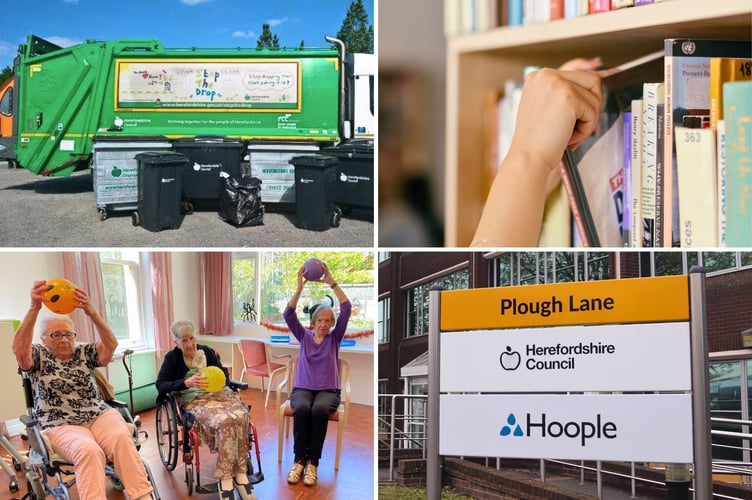A SAVINGS package totalling £19.5 million to stop Herefordshire Council going further into the red could be approved by the council’s cabinet next week.
Here we look at 11 likely to have the biggest impact on the county.
- The biggest individual saving the council plans to make comes from encouraging some staff, thought to number around 1,400 in all, to retire early by mutual consent, saving it £4.5 million next year.
- Second biggest are savings totalling £2.6 million it expects to make from its Thrive transformation programme, which aims to improve the council’s deals with third parties, recover more costs and automate much of the council’s dealings with the public.
- A further £2.1 million is to be saved by trimming the council’s relationship with Hoople, which provides it with a range of services including recruitment, council tax recovery and benefits payments.
- In adult social care, the council’s biggest spending department, all “high-cost” care packages, including those providing two-to-one and three-to-one care, are being reviewed with the goal of saving £1 million.
- In children’s services, its second-largest department by spend, the council plans to save £959,000 by “stepping down higher-cost placements and reuniting some families”.
- It plans to save a further £1 million by converting 30 agency social worker posts to permanent employees by next June, plus £338,000 from cutting 14 social worker posts altogether by March 2025, “based on the assumption of reduced demand”.
- Efficiencies in how it operates its rubbish collection service should bring a further £800,000 in savings.
- It aims to reduce work contracted to its public realm service partner Balfour Beatty by £450,000 and to make efficiency savings on remaining services of a further £250,000.
- It will “reprioritise” its £9.6 million public health grant, where changes to contracts with health partners are intended to save £211,000.
- A new cheaper corporate mobile phone contract should save £170,000.
- By cutting library hours, “with a focus on areas where reductions would have the minimum impact”, it hopes to save £55,000.




